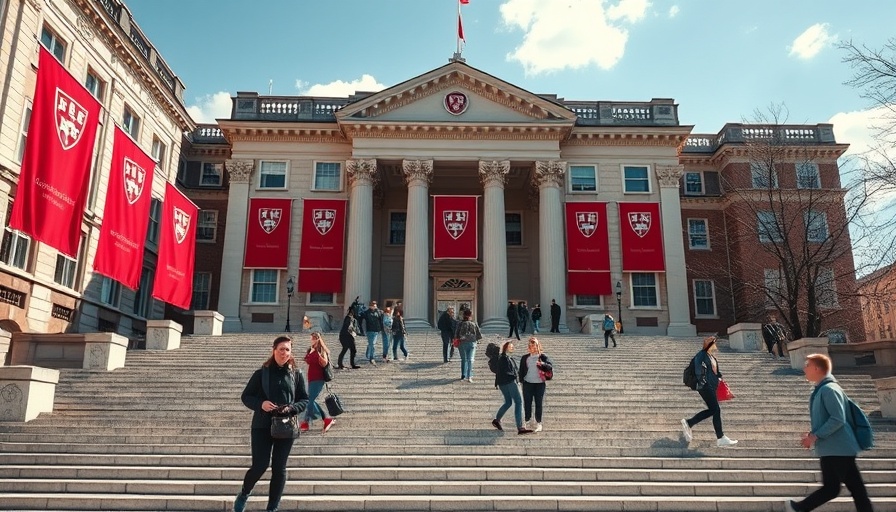
The Ongoing Dispute: Harvard vs. The Trump Administration
In the evolving landscape of higher education funding, Harvard University finds itself at a crossroads with the Trump administration. Reports last week hinted that the prestigious institution might be willing to negotiate, possibly paying $500 million to resolve its ongoing conflict with the White House. However, Harvard President Alan Garber has since clarified that no such deal is imminent, bringing some relief to anxious faculty and stakeholders.
Unpacking the Legal Battle Over Federal Funding
The core of this disagreement lies in Harvard's legal battle to unfreeze approximately $2.6 billion in federal research funding. The Trump administration's withholding of these funds stems from allegations regarding antisemitism on college campuses. The education sector’s anxiety swirls around how political dynamics impact federal funding for institutions traditionally committed to academic freedom and exploration.
Comparing Harvard's Path to Other Ivy League Institutions
While rumors swirled that Harvard might follow in the footsteps of Columbia and Brown Universities—both of which have recently settled with the administration—Garber emphasized a firm stance. Columbia and Brown agreed to various compliance measures, including oversight to monitor adherence to federal policies regarding diversity and inclusion. Harvard, however, has no intention of yielding disciplinary records for foreign students, a significant point of contention that Garber has termed a 'red line.'
The Broader Implications for Higher Education
This standoff between Harvard and the Trump administration is not merely a localized issue; it reflects a broader trend impacting universities across the country. As political pressures mount, these institutions may increasingly face challenges that could influence their operational and educational missions. Other universities in the vicinity should remain vigilant, as this situation could set precedents affecting federal relations and funding.
The outcome of Harvard's dispute with the Trump administration will have significant consequences not only for the university but also for the entire academic community in Boston and beyond. The evolution of this case illustrates the delicate balance educational institutions must maintain as they navigate the often turbulent intersection of politics and scholarship.
As this story unfolds, local residents and those interested in the academic landscape must stay informed on how these negotiations might reshape the future of education in Massachusetts.
 Add Row
Add Row  Add
Add 




Write A Comment